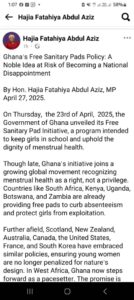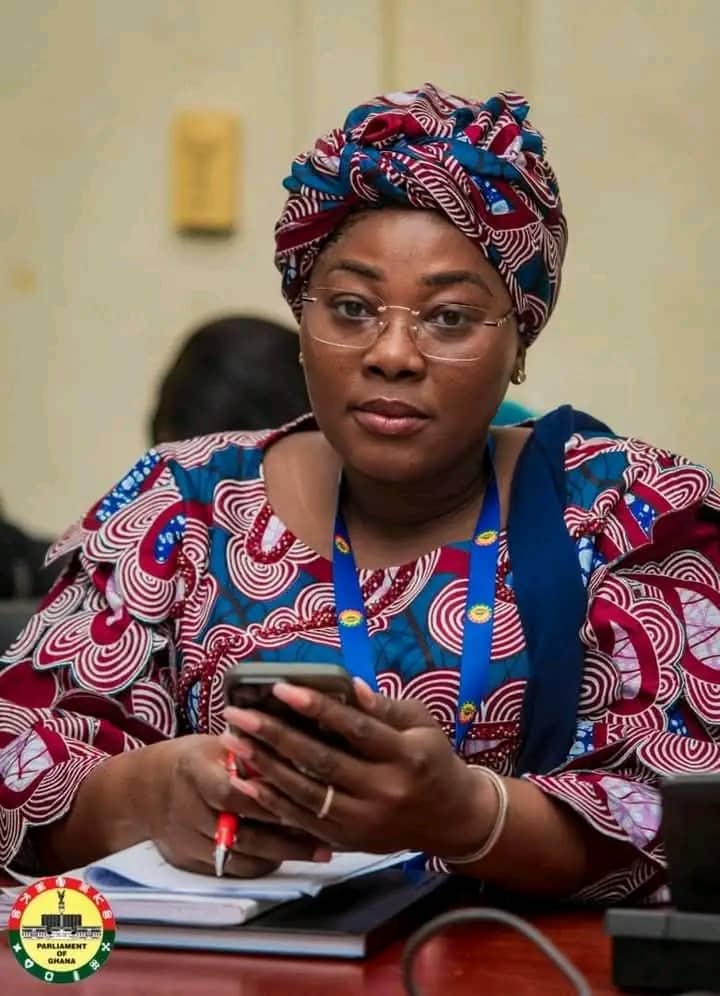By Baba Mohammed Issahak
President John Dramani Mahama on Thursday, April 24, 2025, launched Ghana’s Free Sanitary Pad Initiative, aiming to distribute free sanitary pads to two million schoolgirls nationwide. While the program has earned widespread praise, concerns about its long-term sustainability are already surfacing.
Hon. Hajia Fatahiya Abdul Aziz, Member of Parliament for Savulegu and Deputy Ranking Member of the Committee on Gender, Children and Social Welfare, described the initiative as “noble” but warned it risks becoming a “national disappointment” without urgent reforms.
“Good intentions, without careful execution, often pave the way to bitter disappointment,” she cautioned on her Facebook page.
The government has allocated GH¢292.4 million, roughly GH¢146 per girl annually, for the program. However, Hon. Fatahiya highlighted a “significant funding gap,” noting that monthly costs for quality sanitary pads range between GH¢15 and GH¢40.
Beyond budget concerns, the MP criticized regional disparities, pointing out that distributions have so far favoured urban centres like Accra while rural areas such as Zebilla, Bunkpurugu, Savelugu and several other communities remain underserved.
“Girls in rural communities are left waiting, while boys in better-resourced schools misuse pads meant for their sisters,” she lamented.
According to Hon Fatahiya Infrastructure challenges also pose a threat to the initiative. Citing a 2024 SEND Ghana report, Hon Fatahiya noted that 63% of basic schools lack proper toilet and hygiene facilities, making menstrual management difficult even with pad access.
Additional risks flagged by the MP include supply chain delays, poor product quality, corruption, and an unsustainable funding model.
To make the initiative successful and beneficial, Hon. Fatahiya proposed key reforms including setting up local manufacturing plants, scrapping taxes on sanitary products, prioritizing vulnerable girls, improving school facilities, committing VAT revenues to menstrual health, and using blockchain technology for transparent distribution.
In a direct appeal to President Mahama, she urged for a detailed, costed plan and pilot programs in the five northern regions.
“Our girls deserve not just pads, but dignity,” she emphasized. “Hope alone is not enough.”
Ghana’s Free Sanitary Pad Initiative places it among countries like South Africa, Kenya, and Scotland in recognizing menstrual health as a fundamental right. Whether it becomes a success story or a cautionary tale remains to be seen.



